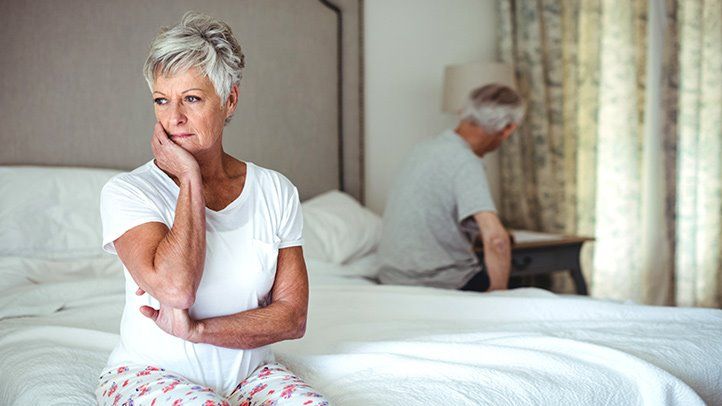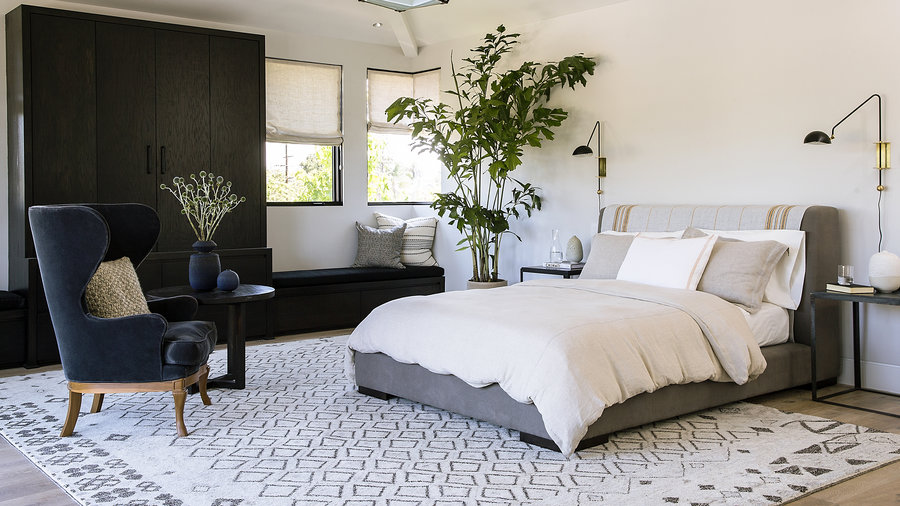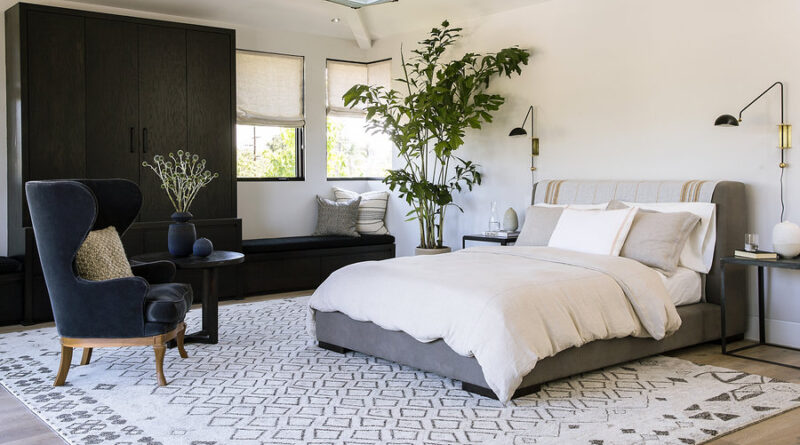Have you ever stopped to think about how much you respect your bedroom? Do you enjoy spending time relaxing in it or do you view it simply as a place to crash after a long, hard day? Do you put the effort in to maintaining a nice space or do you simply chuck your belongings in various places without thought upon returning home? Your bedroom habits may well be having a significant effect on your sleeping pattern. Getting regular and good quality sleep is essential but, sadly, millions of people struggle to hit this goal. With a third of the adult population in the UK reporting to have insomnia, are many sufferers coming to the realisation that their bedroom design might be part of the problem?
What do the experts say?

source: mentalhealth.org.uk
Feng shui and interior design experts are adamant about how the layout and decoration of your bedroom can have significant effects on your health and wellbeing. The phrase, “cluttered room, cluttered mind” is an important mantra, as having excess clutter and a lot of visual stimuli can actually inhibit a person’s ability to think clearly. Clutter can also minimise your space which can prevent you from doing activities you enjoy. For example, you may play the keyboard or enjoy doing yoga from home.
This is why interior design expert Carolyn DiCarlo recommends that you invest in as much storage as possible so that all of your belongings are tucked away, with the exception of a few of your items being left on the side. Our advice is to make these essential, such as an alarm clock, a box of tissues, or your water bottle. Like DiCarlo, Patricia Lohan, feng shui expert, recommends simplifying the aims and themes of your bedroom. By focusing solely upon sleep, relaxation, and intimacy you are guaranteed to create a space which will benefit your health and wellbeing.
The elements of a relaxing bedroom

source: everydayhealth.com
Everyone is different in terms of what we do to unwind, but there a few key elements which are guaranteed to make for a more relaxing bedroom – features that you may not always notice, but are working away in the background to improve your space.
To fall asleep, all adults have to experience a drop in body temperature. This is why we may find it difficult to nod off in an overly warm room. Therefore, it’s important to maintain your bedroom at a comfortable temperature. You may look to turning down the heating or sleeping with a lighter duvet.
Noise is also another factor which can affect sleep, and it comes as no surprise that loud intrusive noises are guaranteed to keep you up at night. You may look to sleep with ear plugs or play pink or white noise which effectively masks other noises.
Light is what naturally causes us to wake up, so in the summer months when the sun sets later and rises earlier, it can be more difficult to get to sleep. You may also find yourself waking up four hours before your alarm, hopelessly trying to return to your slumber. Invest in blackout blinds / curtains to block out disturbing light. If you don’t want to break the bank, even a simple eye mask will do the trick. However, in the winter months you may feel the opposite and struggle to wake up. There as special alarm clocks which gradually wake you up with light – a worthwhile investment if you are consistently late to work.
Let’s not forget the bed itself. Having a comfortable and good quality mattress is guaranteed to make for a better night’s sleep. Forget tossing and turning, you can simply sink into your dreams.
Design tips

source: pinterest.com
How you choose to design your bedroom is entirely up to you – it’s personal preference after all! However, the teachings of feng shui have been heralded for promoting a better night’s sleep and improved wellbeing. For example, having a large headboard is an important part of feng shui as it can help you feel supported and protected. It’s also said one should aim to reduce the number of harsh edges in their room by looking to incorporate plants and smooth sculptures which give the space a more natural finish, encouraging balance and fluidity.
Finally, choosing a colour palette which best reflects the emotions you want to experience inside your room is equally important. Orange may portray warmth whilst blue portrays calm and serenity.
However you choose to decorate your room, stay true to your tastes and emotions as you are creating this sanctuary for yourself, and no one else. By following at least one of these tips you can be sure to look forward to improved and longer rest!





